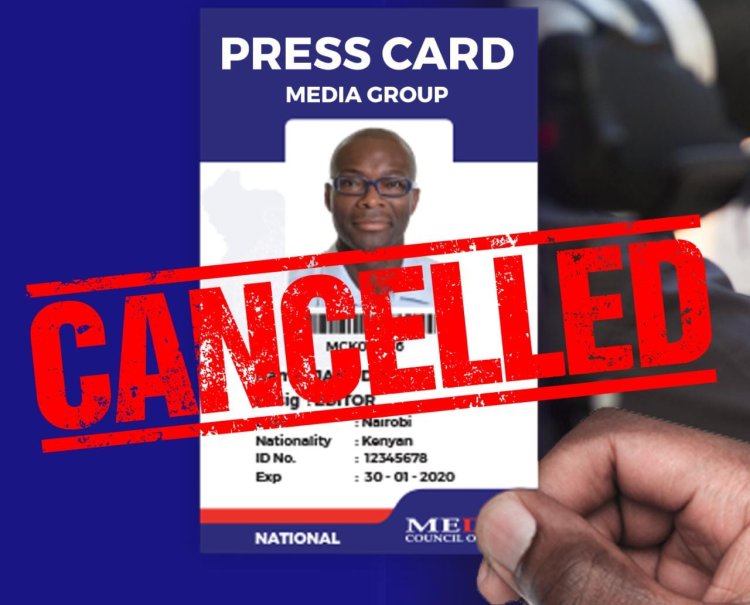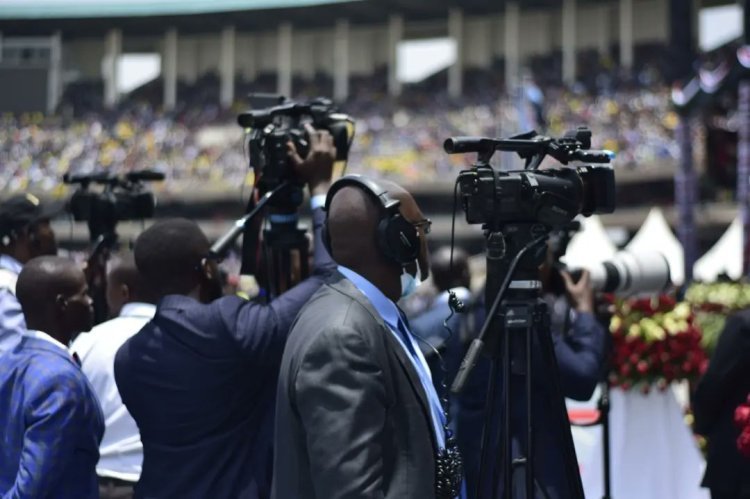AYUKO: Media Council's New Changes Will Hurt Bloggers Relied On For News
The move while commendable put the work of bloggers, vloggers, and citizen journalists in limbo.

By Clive Ayuko
On January 28, 2023, the Media Council of Kenya (MCK) announced that it would recall all press cards issued to media practitioners across the country and issue new ones with new security features in an effort to limit the influx of men and women masquerading as journalists.
The move while commendable put the work of bloggers, vloggers, and citizen journalists in limbo. Additionally, it is a move that will likely have far-reaching consequences on the growth rate of the Kenyan economy in decades to come.
The Constitution of Kenya 2010 stipulates that “Everyone has the right of access to any information held by the state; and any information that is held by another person and that is required for the exercise or protection of any rights.”

An image of the current press cards which will be phased out for new ones. /TWITTER.MEDIA COUNCIL OF KENYA
Further articulating the importance of timely and accurate information streams to enable the public to make informed choices. Most of this information is found in social media platforms as well as the internet blogosphere space and is regularly made available through the work of these individuals.
One of the core functions of the media apart from entertainment and reporting on new information is education, and the media is also listed as a core socialization agency by various sociologists.
Improvements in inventions and innovations in the Information and Communications sectors and the resultant proliferation of citizen journalists, bloggers and vloggers across the country is an important milestone for our country which should not be rolled back with unsound government policy.
The flow of knowledge arguably presents opportunities for Africa’s economic development. As acclaimed in the book The Great Convergence by Richard Baldwin “knowledge flows consisting of data, information searches, communications, transactions and video that dominate the new globalization.”
The global flow of knowledge he continues to argue; "gives lagging countries a chance to catch up through investments in information and communications technologies creating forward and backward benefits in manufacturing and agricultural sectors of the economy.”
This ICT-led globalization and associated knowledge flows are undermining the competitive advantage that industrialised countries once had and changing the outlook of the global value chains.
This also provides developing countries with a window of opportunity for countries in Africa and Asia to leapfrog in the achievement of their development objectives.
The cross-border flow of data and knowledge had broken the monopoly that workers in wealthy nations once had on the use of advanced industrial manufacturing intellectual property.
The MCK and the Communications Authority of Kenya (CA) should therefore create policies which enable ease of operations for media practitioners and journalists to operate and not be seen as an impediment to such growth.
MCK can in turn wait to reap benefits through a media fund charged as a percentage of the annual revenues of the online media platforms when they become profitable. This will ensure a win for all media stakeholders including the public, the practitioners and the regulator.
Individuals found masquerading as journalists should be charged in our courts of law.
Clive Ayuko is the Founder and Editor of the Whistling African.
Do you have an opinion article to share with us? Reach us on info@viraltea.co.ke







